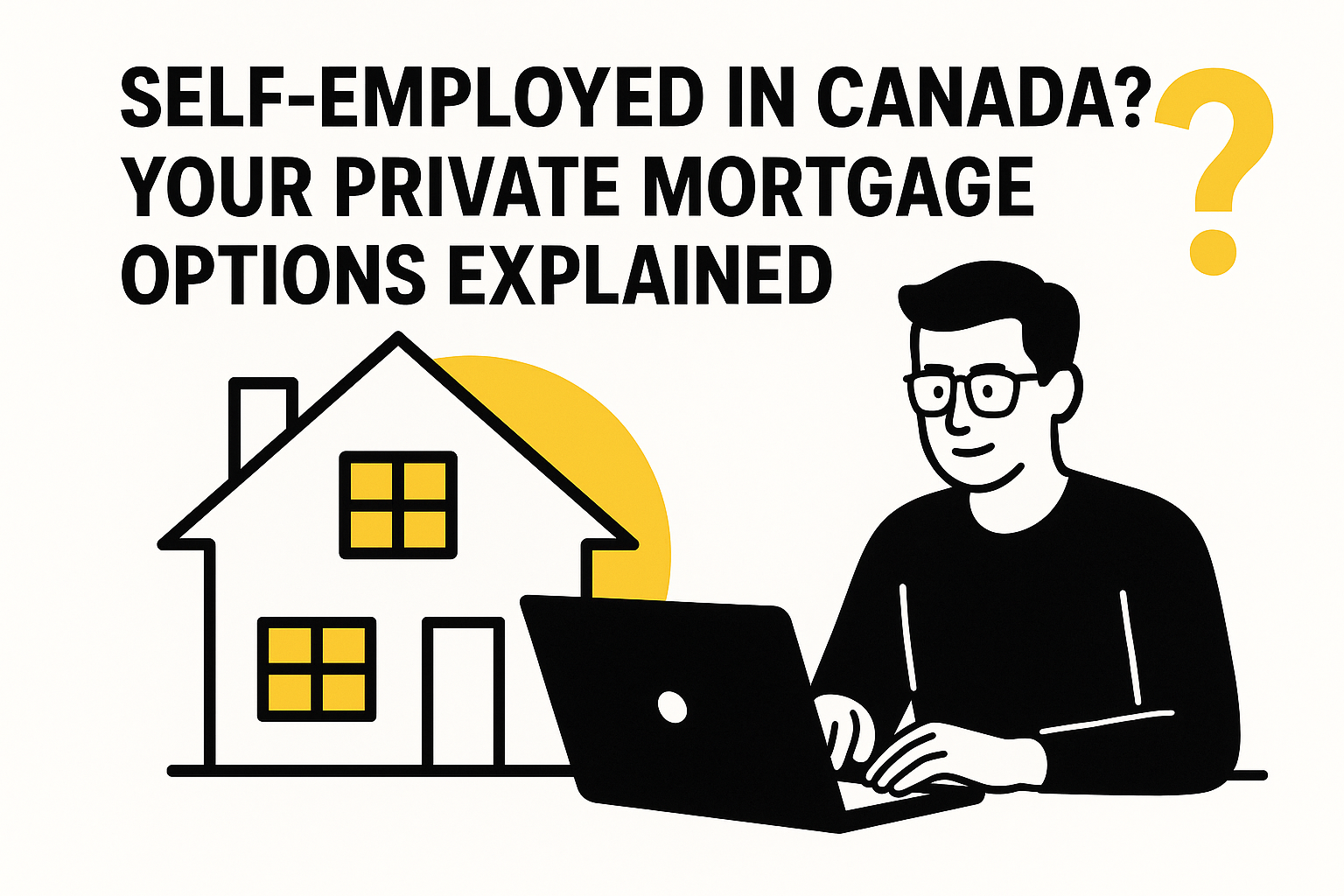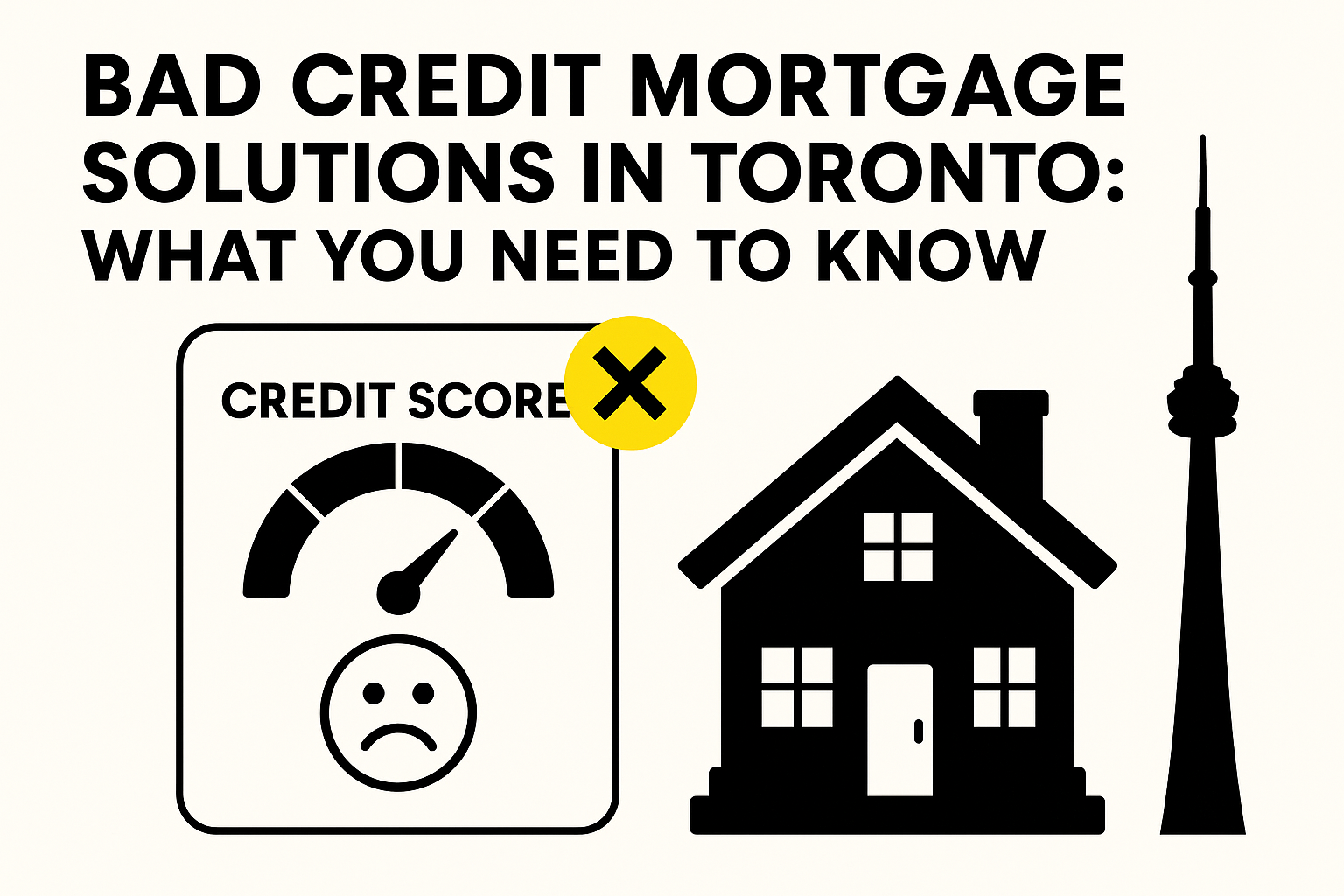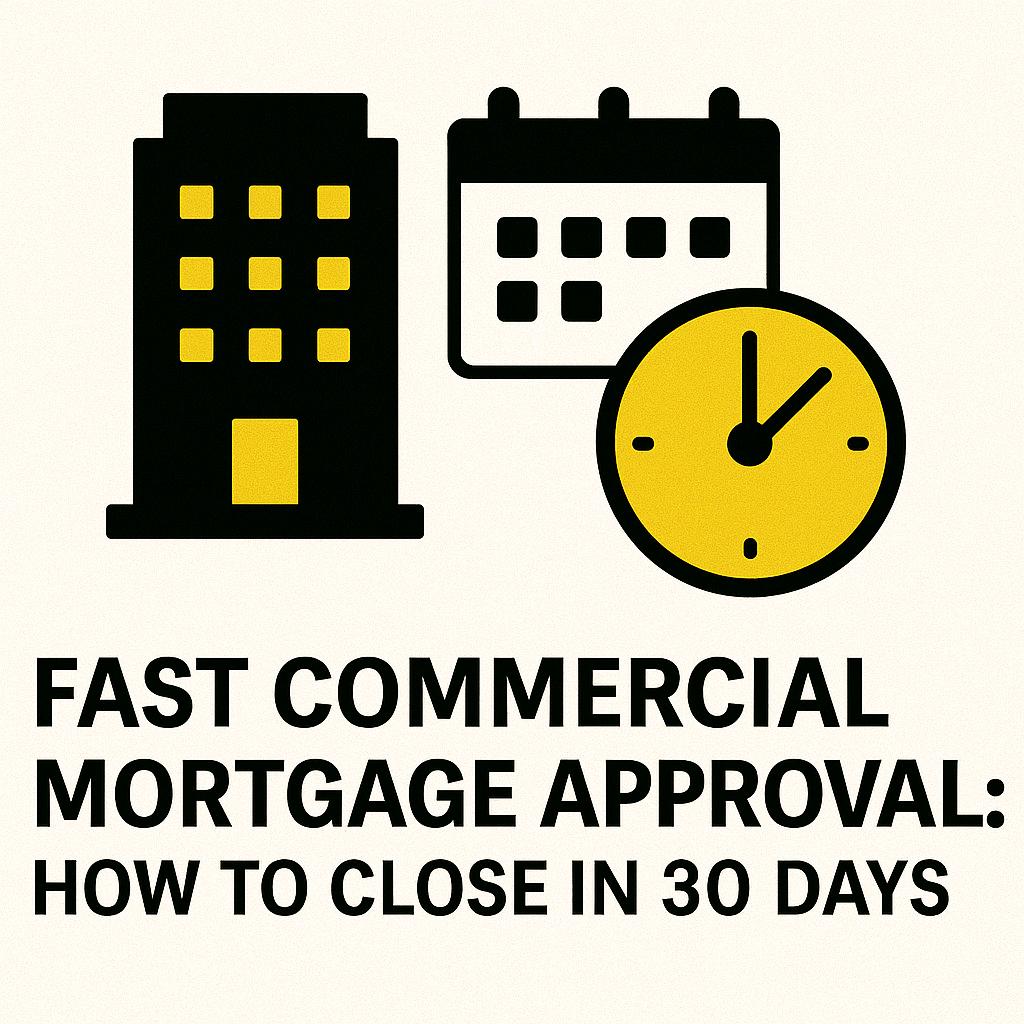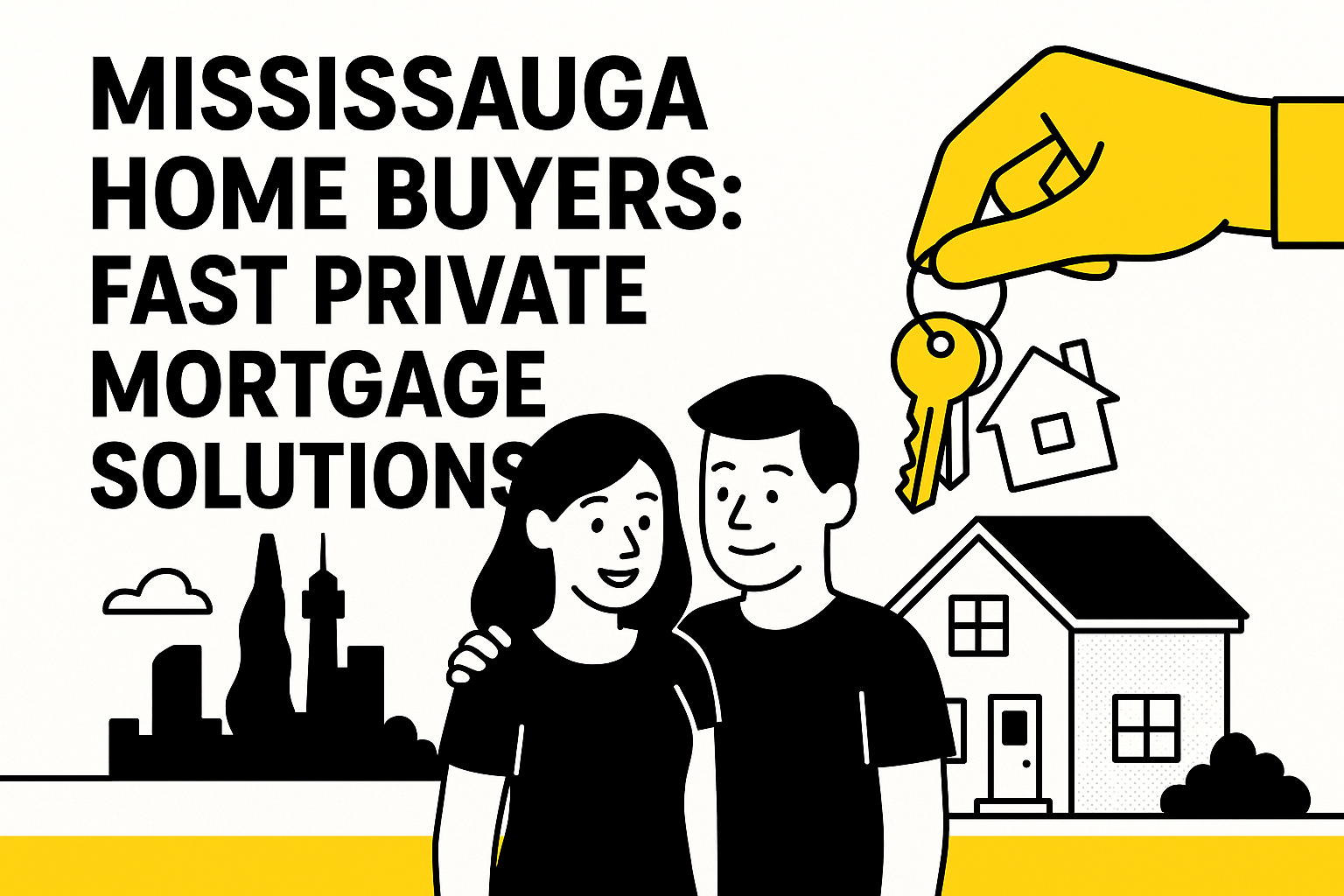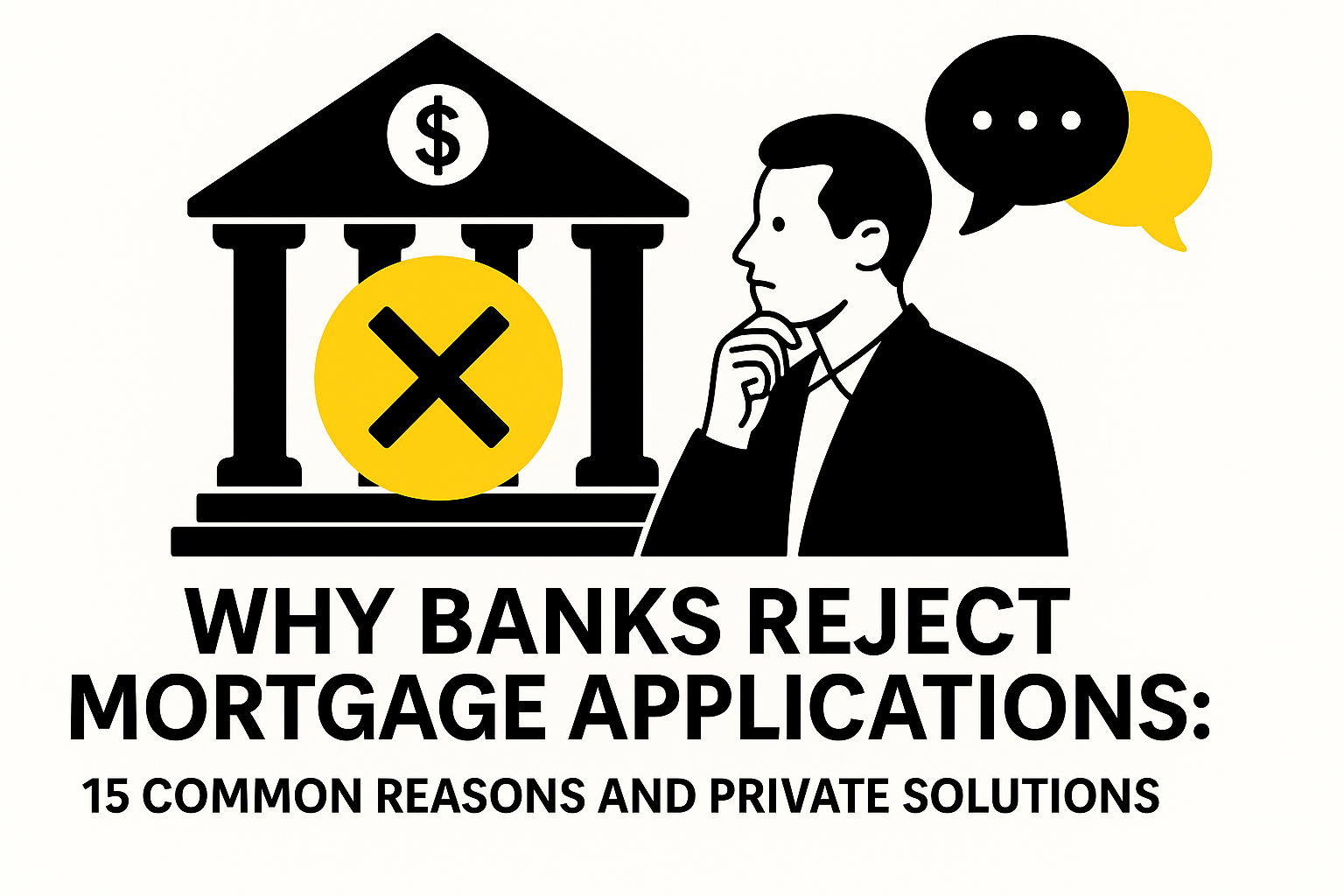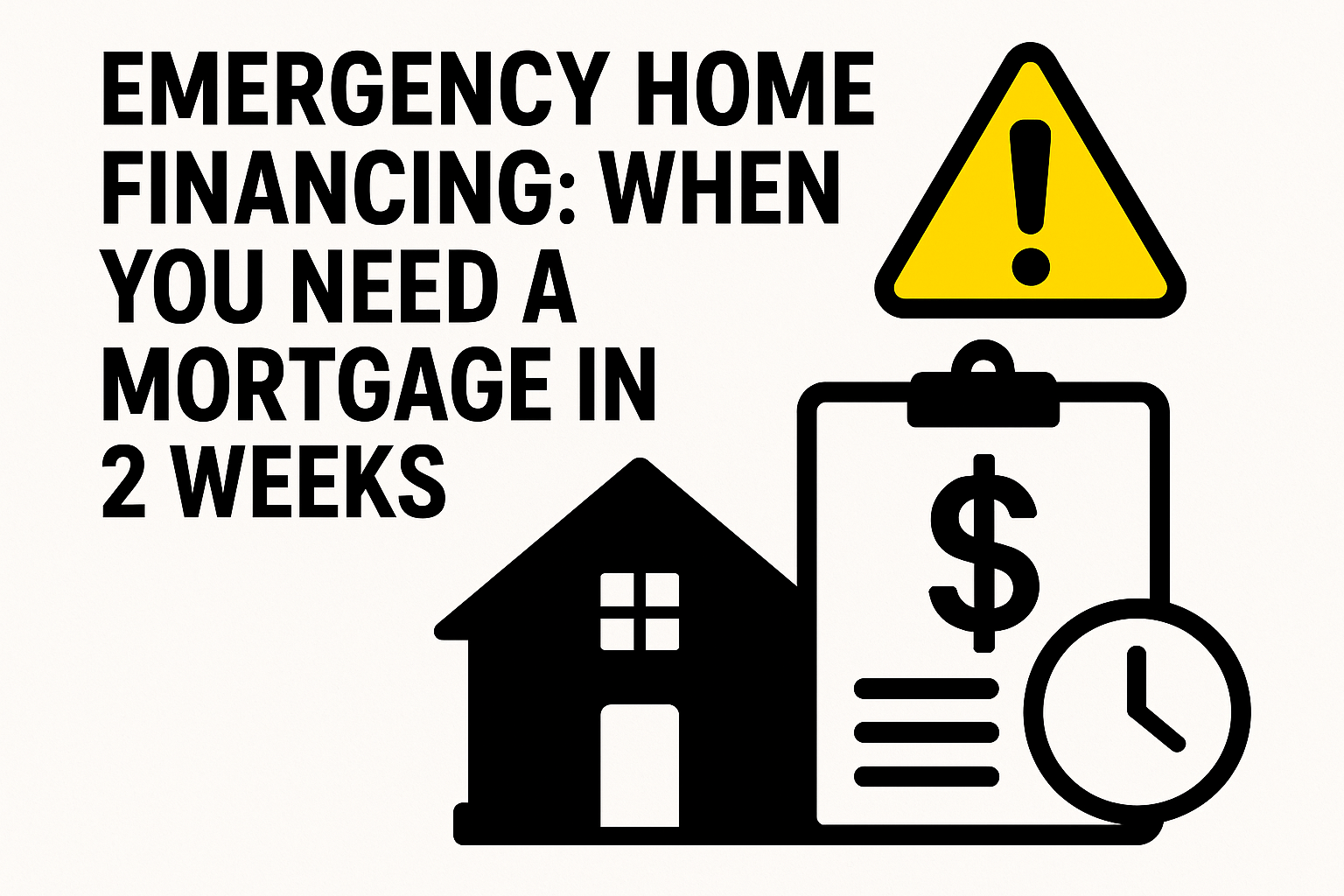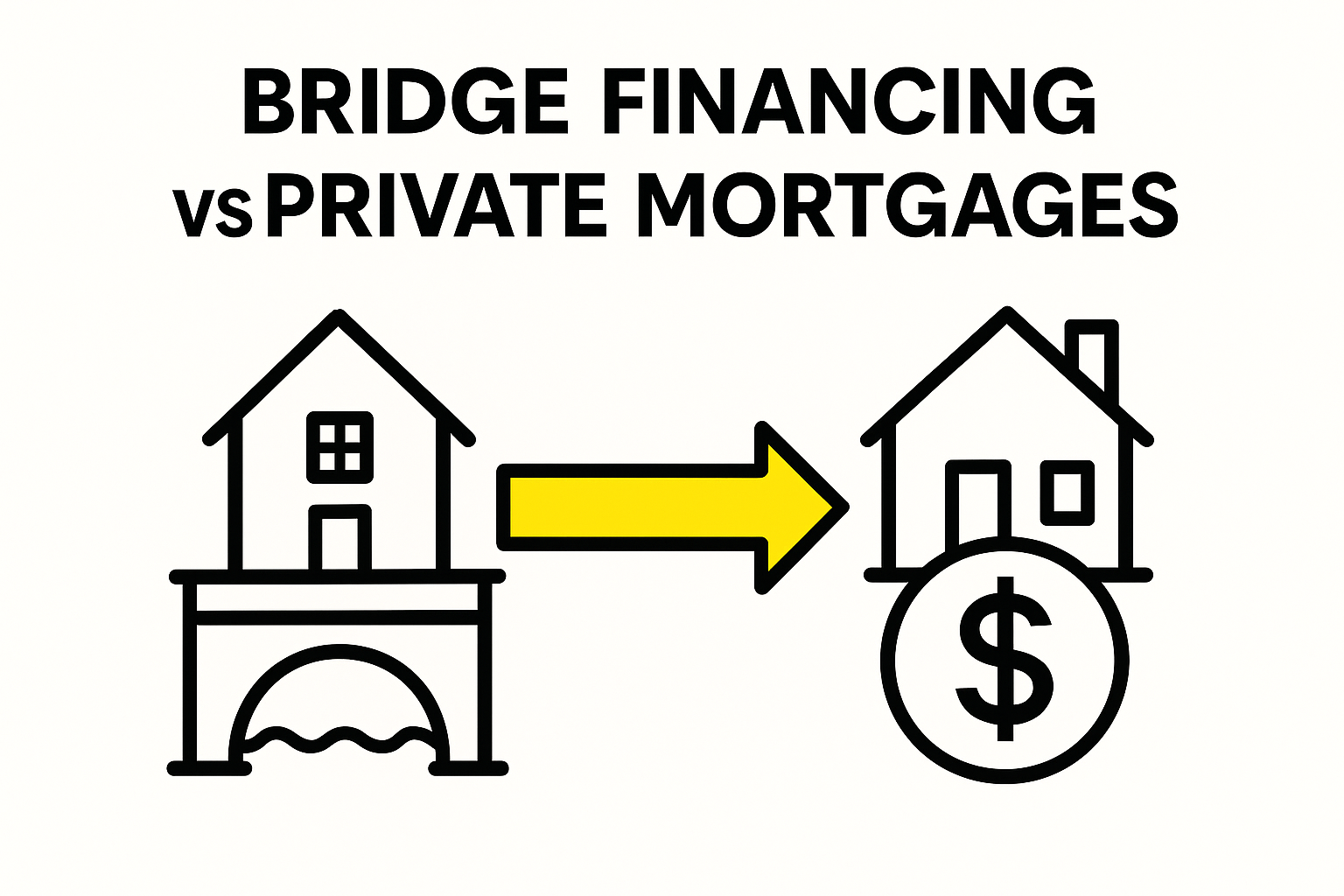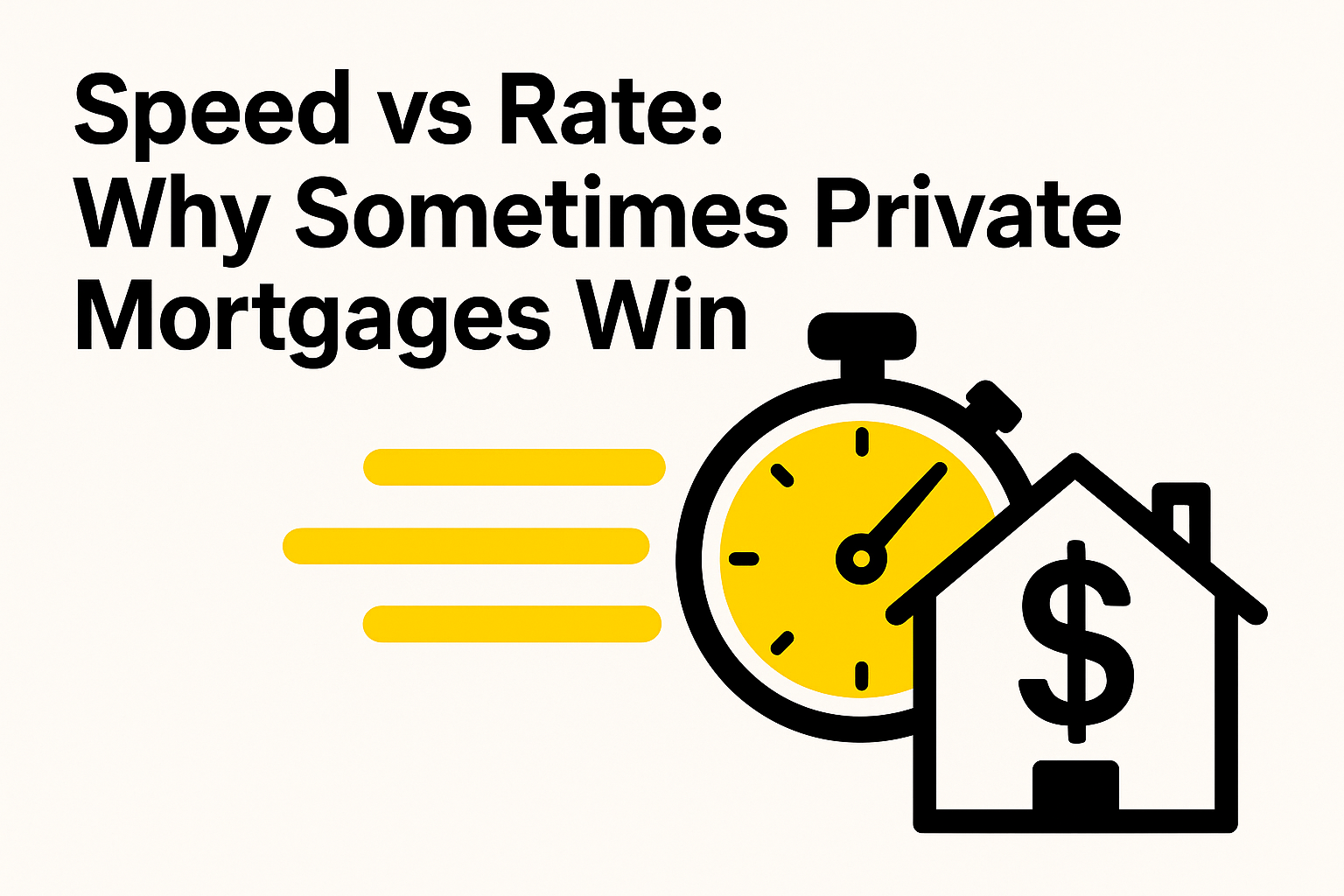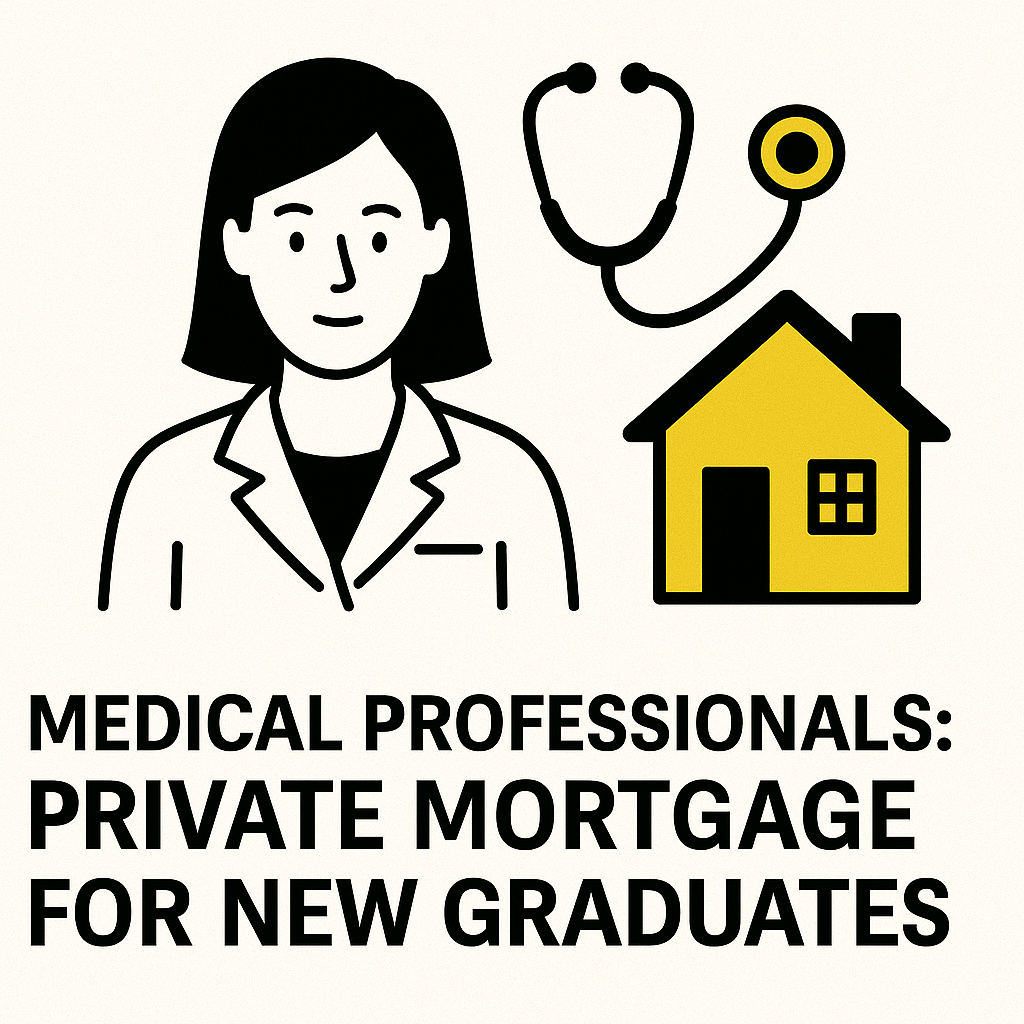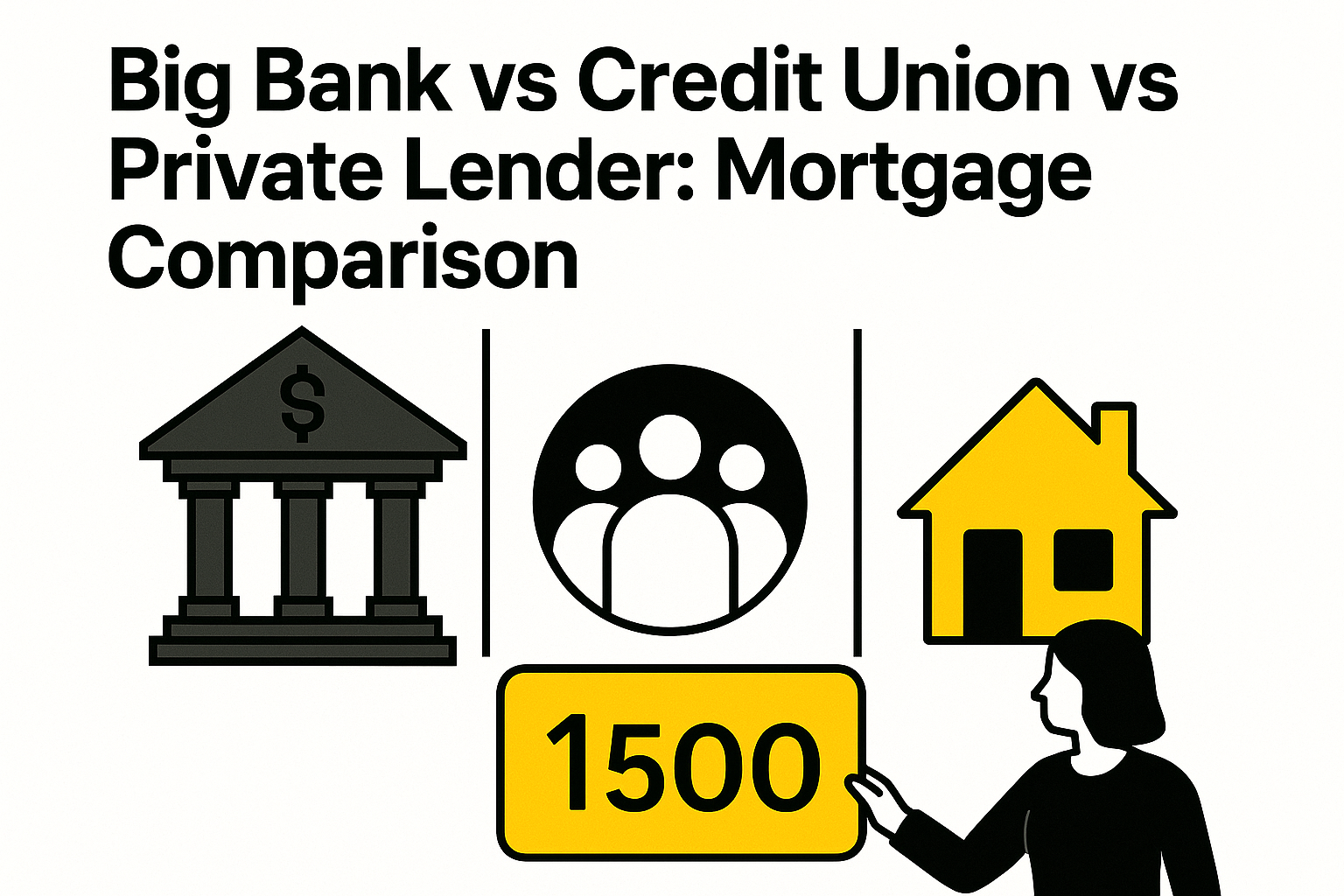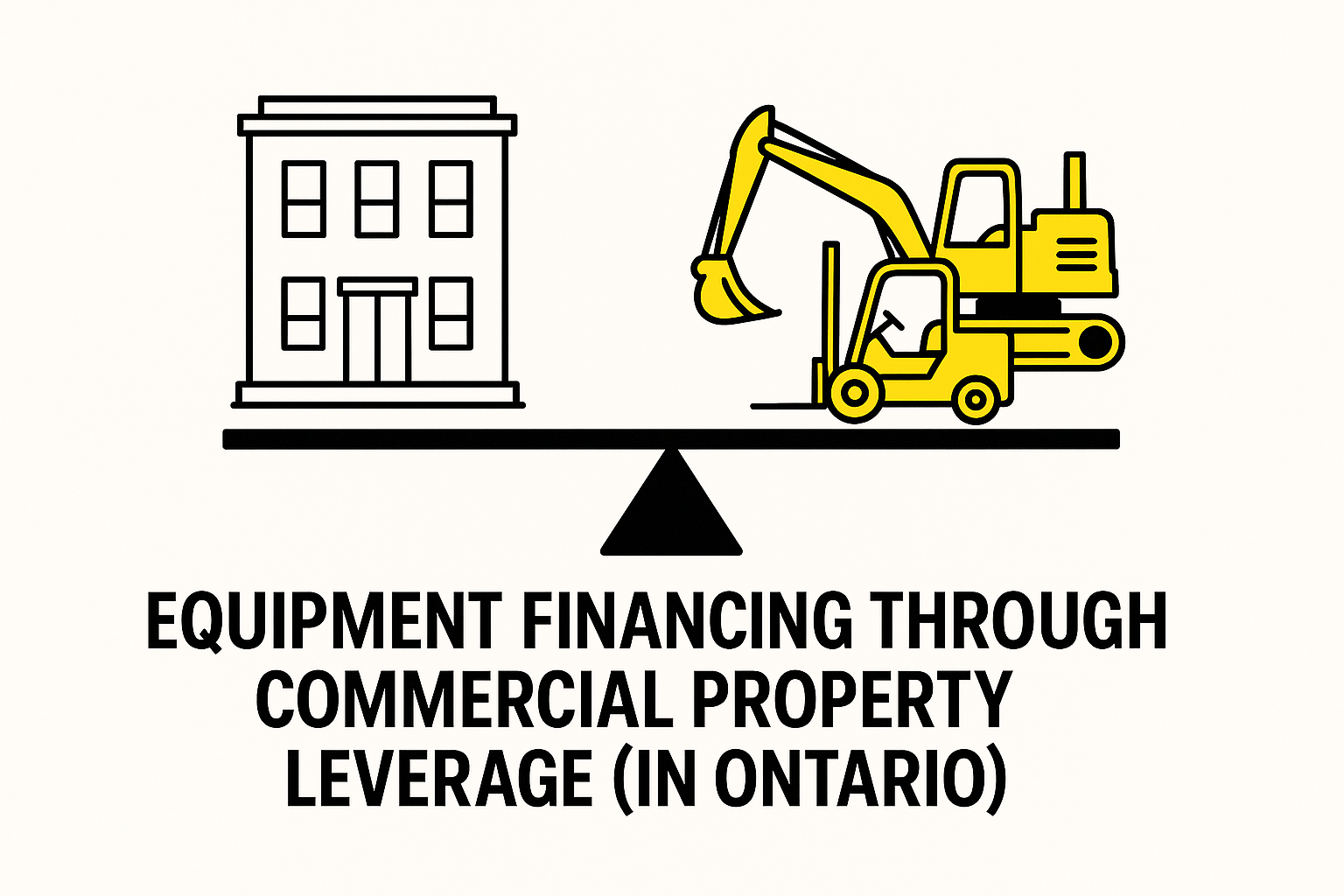Picture a successful IT consultant in Toronto earning $180,000 annually through her incorporated business, with $150,000 saved for a down payment and perfect credit, watching her mortgage application get declined because her tax-optimized income shows only $95,000 after legitimate business deductions. Meanwhile, her employed neighbor with identical take-home pay but W-2 income gets instant approval for the same mortgage amount. This hypothetical scenario illustrates the cruel irony facing millions of Canadian entrepreneurs: their business success and tax efficiency actually prevent them from accessing traditional mortgage financing designed for cookie-cutter employment situations. The very strategies that make them financially successful become liabilities in banking algorithms built for traditional employees.
What most self-employed Canadians don’t realize is that their mortgage rejection from traditional banks isn’t a dead end – it’s simply confirmation they need lenders who understand entrepreneurial income and evaluate financial strength differently. Private mortgage lenders have built entire business models around serving self-employed borrowers that banks systematically reject, often providing faster approval, more flexible terms, and better service than traditional institutions. These specialized programs recognize that business owners, contractors, consultants, and entrepreneurs represent some of the most financially sophisticated and capable borrowers in the country, despite income documentation that doesn’t fit standard banking templates.
Why Banks Struggle with Self-Employed Borrowers
The Tax Optimization vs Bank Qualification Conflict
Self-employed Canadians face an impossible choice: optimize taxes to minimize business income or show high income for mortgage qualification. Smart tax planning legitimately reduces reportable income through business expenses, depreciation, and corporate structures, but banks base lending decisions on the same minimized figures.
A business owner grossing $250,000 might show $120,000 net income after legitimate expenses like vehicle costs, office expenses, equipment depreciation, and professional fees. Banks see only the net figure, ignoring the business owner’s actual cash flow and spending capacity.
This conflict intensifies with incorporated businesses using income splitting, dividend payments, or retained earnings strategies. These sophisticated tax approaches that wealthy Canadians use routinely become mortgage disqualifiers in traditional lending.
Income Documentation That Banks Don’t Understand
Traditional lenders want two years of consistent T4 employment income with clear progression patterns. Self-employed income documentation involves complex financial statements, multiple income sources, and business structures that banking algorithms can’t evaluate effectively.
Banks don’t understand seasonal businesses, project-based income, or revenue that fluctuates based on market opportunities rather than employment stability. A construction contractor might earn $300,000 in a busy year and $150,000 in a slower year, both representing successful business management.
Contract professionals, consultants, and gig economy workers often have multiple income streams that provide more security than single-employer dependence, but banks interpret diversification as instability.
Seasonal and Variable Income Challenges
Many successful Canadian businesses operate seasonally or cyclically – tourism operators, agricultural businesses, retail companies, or construction firms. These businesses might generate substantial annual income during peak periods but show irregular monthly cash flow patterns.
Banks want consistent monthly income documentation that smooths out over 24-month periods. Businesses that earn 70% of annual revenue during specific seasons don’t fit these evaluation models, regardless of profitability or owner compensation.
Understanding Private Mortgage Options for Self-Employed
How Private Lenders Evaluate Self-Employed Income
Private lenders focus on business viability, cash flow capacity, and borrower equity rather than complex income verification processes. They understand that successful business owners often minimize reported income for tax purposes while maintaining strong personal cash flow.
The evaluation process emphasizes:
- Business bank statements showing actual cash flow patterns
- Revenue trends demonstrating business growth or stability
- Industry knowledge understanding sector-specific income patterns
- Professional credentials recognizing expertise and earning capacity
- Property equity ensuring adequate security regardless of income documentation
Private lenders often have experience with specific industries and understand normal income patterns for contractors, consultants, and business owners that banks treat as problematic.
Stated Income Programs vs Bank Statement Loans
Stated income programs allow borrowers to declare their income without traditional verification, relying on professional credentials, business documentation, and property equity for qualification. These programs work well for established professionals with strong equity positions.
Bank statement loans use business and personal bank statements to verify cash flow and income capacity rather than tax returns. Lenders analyze deposit patterns, business expenses, and net cash flow to determine lending capacity.
Both approaches recognize that tax returns don’t accurately reflect self-employed borrowers’ true financial capacity or ability to service mortgage payments.
Asset-Based Lending for High Net Worth Entrepreneurs
Wealthy self-employed borrowers often qualify for asset-based lending programs that focus on investment portfolios, business equity, real estate holdings, and overall net worth rather than traditional income documentation.
These programs work particularly well for business owners with substantial assets but complex income structures that don’t translate well to traditional mortgage applications.
Types of Self-Employment That Benefit Most
Contractors and Consultants
Independent contractors, IT consultants, management advisors, and professional service providers often have excellent income but employment structures that terrify traditional banks. Private lenders understand these professional relationships and evaluate earning capacity based on skills, experience, and contract history.
Long-term contracts, recurring client relationships, and specialized expertise provide income security that banks don’t recognize but private lenders value appropriately.
Small Business Owners and Franchise Operators
Business owners often have complex financial structures with corporate income, personal draws, retained earnings, and business expenses that make traditional income verification challenging. Private lenders can evaluate business financial statements and owner compensation holistically.
Franchise operators particularly benefit from private lending since lenders can evaluate franchise performance, brand strength, and industry knowledge rather than just individual income documentation.
Creative Professionals and Commission-Based Workers
Artists, writers, photographers, real estate agents, insurance brokers, and sales professionals often have irregular income that averages well over time but doesn’t fit monthly salary patterns banks prefer.
Private lenders can evaluate career trajectory, client base strength, and industry position rather than just recent income history, providing financing options for successful creative professionals banks systematically reject.
Real Estate Agents and Sales Professionals
Real estate professionals face particular challenges with traditional lending due to commission-based income that fluctuates seasonally and cyclically. Private lenders understand real estate industry income patterns and can evaluate agent productivity, market knowledge, and client base strength.
Successful agents often have substantial real estate holdings and industry expertise that private lenders value even when recent commission income appears variable.
Documentation Requirements for Private Mortgages
Business Financial Statements and Tax Returns
While private lenders don’t rely exclusively on tax returns for income verification, they typically still require business and personal tax returns for the past 1-2 years to understand overall financial picture and business structure.
Business financial statements, profit and loss statements, and accountant-prepared documents help establish business viability and owner compensation beyond just tax return figures.
Bank Statements and Revenue Verification
Business and personal bank statements for 3-6 months provide crucial insight into actual cash flow, business operations, and financial management. Private lenders analyze these statements to understand real income capacity.
Revenue verification might include client contracts, invoicing records, payment processing statements, and professional licenses confirming credentials and earning capacity.
Professional References and Industry Credentials
Character references from accountants, lawyers, business partners, or long-term clients help establish credibility and business stability. Professional credentials, certifications, and industry recognition support income claims and business viability.
Interest Rates and Terms for Self-Employed Borrowers
Rate Structures and Risk Pricing
Private mortgage rates for self-employed borrowers typically range from 7-12%, depending on down payment, credit score, business stability, and overall risk profile. Self-employed borrowers often pay slightly higher rates than traditional employees due to perceived income complexity.
However, the rate differential is usually smaller than most people expect – often only 0.5-1% higher than rates for employed borrowers with similar equity and credit profiles.
Rate factors include:
- Down payment size – Higher equity reduces rates significantly
- Credit score – Excellent credit can offset self-employment concerns
- Business stability – Established businesses get better rates
- Industry type – Some industries are viewed more favorably
- Exit strategy – Clear refinancing plans improve terms
Loan-to-Value Ratios and Down Payment Requirements
Self-employed borrowers typically need 20-25% down payments for private mortgages, though some programs work with 15% for exceptional circumstances. Higher down payments often unlock better rates and terms.
The equity requirement provides security that allows private lenders to focus less on income verification and more on property value and borrower commitment.
Term Options and Renewal Strategies
Most private mortgages for self-employed borrowers are structured as 12-24 month terms, providing time to improve income documentation, business stability, or credit profiles for future traditional bank qualification.
Renewal options depend on payment performance and changing circumstances. Successful borrowers often qualify for better terms at renewal or transition to traditional bank financing.
Provincial Differences Across Canada
Ontario’s Regulatory Environment
Ontario has the most developed private lending market in Canada, with extensive regulatory oversight through FSRA and established networks of private mortgage lenders familiar with self-employed borrowers.
The province’s diverse economy includes many entrepreneurs, contractors, and consultants who need alternative financing options, creating strong demand and competitive private lending markets.
Quebec’s Unique Requirements
Quebec’s civil law system and language requirements create unique considerations for private mortgages. Documentation may need French translation, and legal processes differ from other provinces.
However, Quebec’s strong small business sector and entrepreneurial culture have created sophisticated private lending options for self-employed borrowers who understand the provincial requirements.
Western Provinces and Atlantic Canada
Western provinces often have more resource-based and seasonal businesses that benefit from private lenders who understand industry cycles. Alberta’s energy sector, BC’s forestry and technology industries create unique lending considerations.
Atlantic Canada’s smaller markets may have fewer private lending options but also less competition, potentially creating opportunities for self-employed borrowers willing to work with regional lenders.
Here’s your self-employed private mortgage framework:
| Business Type | Documentation Needed | Expected Rates | Best Programs |
| Established Consultant | Contracts, bank statements | 7-9% | Stated income programs |
| New Business Owner | Business plan, projections | 9-11% | Bank statement loans |
| Commission Professional | Sales records, testimonials | 8-10% | Industry-specific programs |
| Seasonal Business | Multi-year statements | 8-11% | Cash flow focused lenders |
| High Net Worth | Asset statements | 7-9% | Asset-based lending |
This framework helps identify suitable private mortgage options based on your specific self-employment situation.
Additional information about lending regulations is available through Mortgage Professionals Canada.
Converting to Traditional Bank Financing
Improving Your Bank Qualification Profile
Use your private mortgage period strategically to build qualification for traditional bank financing. This might involve consistent income reporting for 2+ years, business growth documentation, and credit score improvement through perfect payment history.
Professional relationship building with accountants who understand mortgage qualification can also significantly improve your traditional lending prospects when renewal time arrives.
Working with Mortgage Professionals
Experienced mortgage brokers understand both private lending and traditional bank requirements for self-employed borrowers. They can structure your private mortgage to maximize future bank qualification chances.
The right broker can often identify traditional lending opportunities sooner than expected, potentially allowing early transition from private to bank financing when circumstances improve.
Timing Your Transition
Monitor traditional lending markets and your qualification profile to identify optimal timing for transitioning back to bank financing. Market conditions, policy changes, and improved documentation can create opportunities earlier than expected.
Some self-employed borrowers discover they prefer private lending relationships that understand their business and provide more flexible service than traditional banks.
Frequently Asked Questions
Do I need two years of business income for private mortgages? No, private lenders are much more flexible about income history requirements. Some programs work with 6-12 months of business operation, especially for experienced professionals starting new ventures.
Will my business type affect approval or rates? Yes, some industries are viewed more favorably. Professional services, technology, and established trades typically get better treatment than newer or perceived higher-risk industries.
Can I get private mortgages for investment properties? Yes, many private lenders offer investment property financing for self-employed borrowers. The property’s rental income and your business income combine to support qualification.
How much can I borrow with stated income programs? Loan amounts depend primarily on property value and down payment rather than stated income levels. Most programs allow borrowing up to 75-80% of property value.
Will private mortgages hurt future bank financing chances? No, successful private mortgage management often strengthens future bank applications by demonstrating payment ability and property ownership.
Are there lenders specializing in self-employed borrowers? Yes, many private lending companies focus specifically on self-employed borrowers and understand unique challenges and income patterns.
Conclusion
Self-employment in Canada shouldn’t disqualify you from homeownership, yet traditional banks systematically reject successful entrepreneurs whose tax-optimized income doesn’t fit cookie-cutter lending algorithms. The solution lies in private mortgage programs specifically designed for business owners, contractors, consultants, and professionals who understand that true financial strength goes beyond tax return figures. Private lenders recognize that entrepreneurial income often provides more security than traditional employment, evaluating borrowers based on business viability and cash flow capacity rather than rigid documentation requirements.
The key to private mortgage success as a self-employed borrower is understanding that these programs aren’t inferior alternatives to bank financing – they’re often superior solutions providing faster approval and more flexible terms. While private mortgage rates may be higher initially, the ability to purchase property immediately while building qualification for future traditional financing often provides better long-term outcomes than waiting years to fit banking algorithms that may never accommodate entrepreneurial success.
Ready to explore private mortgage options designed for self-employed Canadians? Contact HERCULES Team Investment Group today to discuss stated income programs, bank statement loans, and asset-based lending solutions that turn your business success into homeownership opportunities regardless of traditional banking obstacles.

